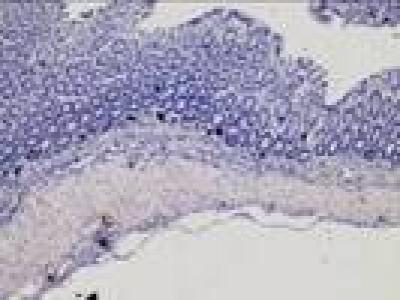Irritable bowel syndrome patients extensively suffer from chronic visceral hypersensitivity, with involvement of all levels of the brain-gut axis, as well as various neurotransmitters. Chronic visceral hypersensitivity can occur in the periphery, spinal cord and central nervous system, which has been shown to be the main pathophysiological mechanism underlying abdominal pain in patients with irritable bowel syndrome. Acupuncture at Tianshu (ST25) and Shangjuxu (ST37) has been reported to relieve visceral hypersensitivity for irritable bowel syndrome. Xinxin Guo and colleagues from the Third Affiliated Hospital of Zhejiang Chinese Medical University found that electroacupuncture treatment can improve visceral hypersensitivity in irritable bowel syndrome by diminishing P2X4 receptor immunoreactivity in the colon and spinal cord. This finding, published in the Neural Regeneration Research (Vol. 8, No. 22, 2013), provides medical support to reveal the central mechanisms underlying electroacupuncture treatment for irritable bowel syndrome.

Electroacupuncture at Tianshu (ST25) and Shangjuxu (ST37) points significantly decreased P2X4 receptor immunoreactivity in the colon of rats with chronic visceral hypersensitivity.
(Photo Credit: Neural Regeneration Research)
Source: Neural Regeneration Research